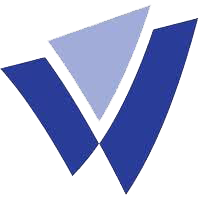Waterford Streamlines Document Management with harmon.ie


Industry
Government
Location
Ireland
Company Size
About Waterford City and County Council Case Study
When the two governing bodies within Waterford, Ireland, were merged as the result of the Local Government Reform Act, the newly united Waterford City and County Council faced a daunting task: how to combine operations that served nearly 114,000 people and merge a huge trove of records in a very short time, all while staying in compliance with Ireland's strict record-keeping laws.
The oversight of this task fell to one person who knew that the best bet was to find an intuitive, software-based solution, that would let Council employees handle the tasks within the systems they already used, while also archiving the full spectrum of record types – from documents, to audio files, to emails – in a way that both kept them available, and kept the Council in compliance with the law.
The Challenge
The City Council and County Council in Waterford were the last local government authorities to be merged under the Local Government Reform Act which meant they had the shortest amount of time to transition into a single entity with unified records that were easily accessible. Complying with record-keeping laws, of course, was not negotiable, and some of the documents dated back a century or more.
"We're heavily regulated. You may have to keep a document 30 or 40 years if it's a planning file and potentially hundreds of years, if it's property management," Rachel Neylin, Online Manager for Waterford City and County Council. “We have to have these file indexes in place, so people have to be trained on them."
There also was another crucial issue to contend with. "Unless the solution addressed how workers use email," said Neylin, "it wasn't going to work at all and you might as well not even bother. So many people work through email and they use it in a colloquial fashion, so they don't tend to attach the same importance to an email," she said. “They don't realize it is actually a record and can be produced in court if required."
The Waterford City and County Council had much to accomplish and not much time to do it – nor many people to oversee the process. "Originally they were going to have five people working on this project," said Neylin, "but that project group hasn’t materialized."
Having used SharePoint in the past, Neylin felt it was a good fit for what needed to be done. SharePoint 2007 was already in limited use by the finance, sport, corporate, and management departments for document management. But SharePoint’s limited exposure was not the biggest problem: SharePoint 2007 was widely disdained by employees. Even among those who had been trained on it, many had been swayed by rumors it was difficult to work with and were hesitant to learn how to use it properly.
The existing bias meant a widespread cultural change was needed before there could be broad adoption. "Workers' perception of SharePoint was one thing to try and counter," Neylin said. "It also wasn't viewed very positively because it was seen as being part of the merger. Because we have people working out of multiple, maybe three or four locations in day, any potential solution needed to work from every location."
The Solution and the harmon.ie Experience
Rachel needed something that would help employees embrace all of SharePoint's features and Google led her to harmon.ie. She downloaded the free version first and tried it out with several employees, some of whom had used SharePoint before and others who had not – the latter being the "hard nuts to crack." She knew if they could be won over, they would become "flag bearers" for harmon.ie and create that cultural change necessary to get SharePoint adopted by workers.
How did the trial go? Very well: the Waterford City and County Council decided to hire two trainers and now has 250 people using harmon.ie and the more current SharePoint 2013.
"harmon.ie was the key in getting the whole SharePoint option moving forward," said Neylin.
Having the SharePoint team calendar and harmon.ie operating from the same pane in Outlook also helped because workers then associated them with each other. That, in turn, developed a positive vibe among users that replaced the previous distrust of SharePoint. Along with sharing documents, workers also shared their experiences, asking each other what they thought and replying, "Oh, it was great," said Neylin.
Using harmon.ie to facilitate SharePoint adoption has helped the Council tackle the mass of documents it and its independent predecessors accumulated under Irish regulations. The trove included PDFs, PowerPoints, GPS and GIS files, audio clips, spreadsheets, images and text documents, as well as emails that are increasingly associated with every project. This also addressed the Council’s need to comply with stringent regulations for document retention.
"It’s absolutely key that we have a proper file index, that we have proper retention periods, and that people understand that anything that comes through email can be regarded as a record, so they have to be careful of what they say, what they do, and how they save it," Neylin said. "If we didn't have harmon.ie, we wouldn't be able to do it all."
Local authorities, like the one in Waterford, assume many roles in their communities. In that way, they are a lot like a collection of businesses with different products and services. Neylin felt SharePoint, on its own, was aimed more at handling the documents of a single company, but harmon.ie provided the kind of support the Council needed to show its employees all of SharePoint's abilities and how they could be used across all departments, keeping the necessary documents immediately within reach whenever needed.
Learn more about council file management.
The Future
The Waterford City and County Council continue to train employees in harmon.ie and SharePoint, with a goal of increasing adoption to approximately 450 users. harmon.ie has been absolutely key in getting the SharePoint solution underway for the Council’s records management needs. "harmon.ie is just really, really good. Very practical, very user-friendly and intuitive," said Neylin.
Powered by harmon.ie, the Council is on the verge of completing the once monumental task of moving records archived under the old internet domains of its predecessors, into SharePoint. Once accomplished, the old domains can finally be shut down – a symbolic closing of the books on its transformation into a single governing body.
"If we didn’t have harmon.ie, we wouldn’t be able to do it at all," Neylin said. "Loads of things now are being done through harmon.ie."
Bring Everything Together in SharePoint, Microsoft Teams, and OneDrive
Unify your content – emails, documents, and conversations – drag and drop Outlook emails and attachments into SharePoint, Teams, and OneDrive.
